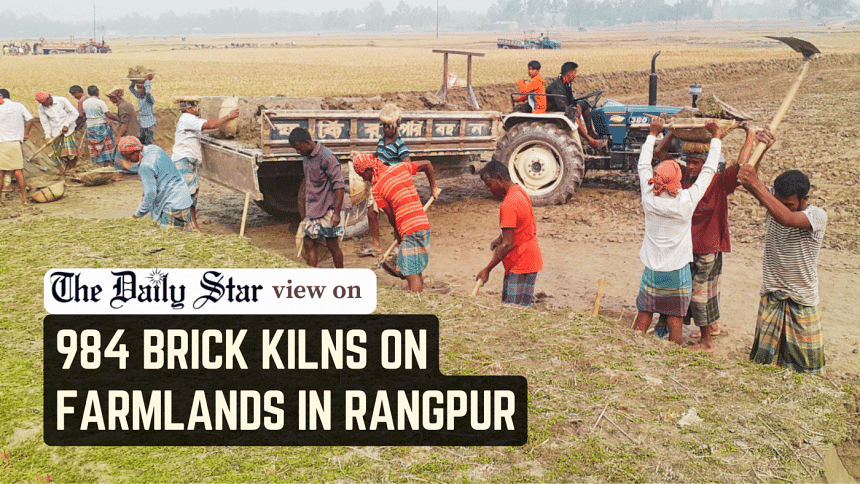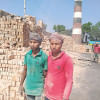What will it take to end the brick kiln menace?

The number is quite staggering, and it's frustrating that such numbers exist even when there is a pro-environment government in place. According to a report citing officials at the departments of environment and agricultural extension in Rangpur, the division has 984 brick kilns—set up on farmlands across its eight districts—operating in violation of government regulations. These kilns use fertile topsoil to make bricks in a process that causes significant damage to the local environment, livelihoods, and health. While the proliferation of such kilns, owned or operated mostly by people with political connections, was understandable under the Awami League regime, their continued operation now questions the ability and sincerity of the interim administration.
The situation is by no means unique to Rangpur. Similar operations also continue in many other areas, ravaging topsoil and burning bricks with impunity. Not long ago, we highlighted the case of Brahmanbaria where, according to a Prothom Alo report, 56 kilns operate illegally. Many of them, including one set up by a former Awami League lawmaker, have no valid documents such as environmental clearance or the permit for brick burning. Many were set up on agricultural lands and even wetland areas. In Lalmonirhat, according to another recent report, 36 brick kilns are operating without a clearance certificate. Although there is no central database on the number of illegal or non-compliant brick kilns in the country, the above reports portray a grim picture.
The question is, what is the interim government doing? To be fair, the environment ministry did take some encouraging steps, including the development of a National Air Quality Management Action Plan in early November to tackle sources of air pollution and enhance enforcement mechanisms. More recently, it has overseen a number of drives through mobile courts targeting illegal kilns, shutting down quite a few by demolishing their chimneys while ordering the closure of multiple others. These measures, however, are proving to be inadequate to address the menace of brick kilns.
We, therefore, urge the government to step up its efforts. Given the massive impact of brick kilns, having legal papers or not, it is no longer enough to just go after a few illegal ones without enforcing compliance across the sector or addressing the heavy reliance on topsoil or traditional bricks. What's at stake here is not just the health of our environment or local communities. The livelihoods of farmers, and by extension the nation's food security, are also at risk. So, the government must explore options to replace traditional brick-making in a way that eventually reduces topsoil and fuel consumption.


 For all latest news, follow The Daily Star's Google News channel.
For all latest news, follow The Daily Star's Google News channel. 









Comments